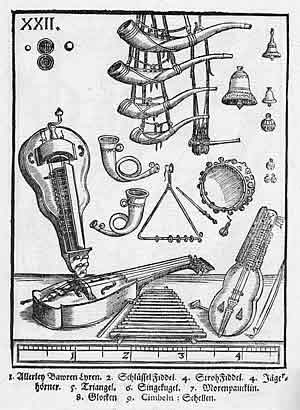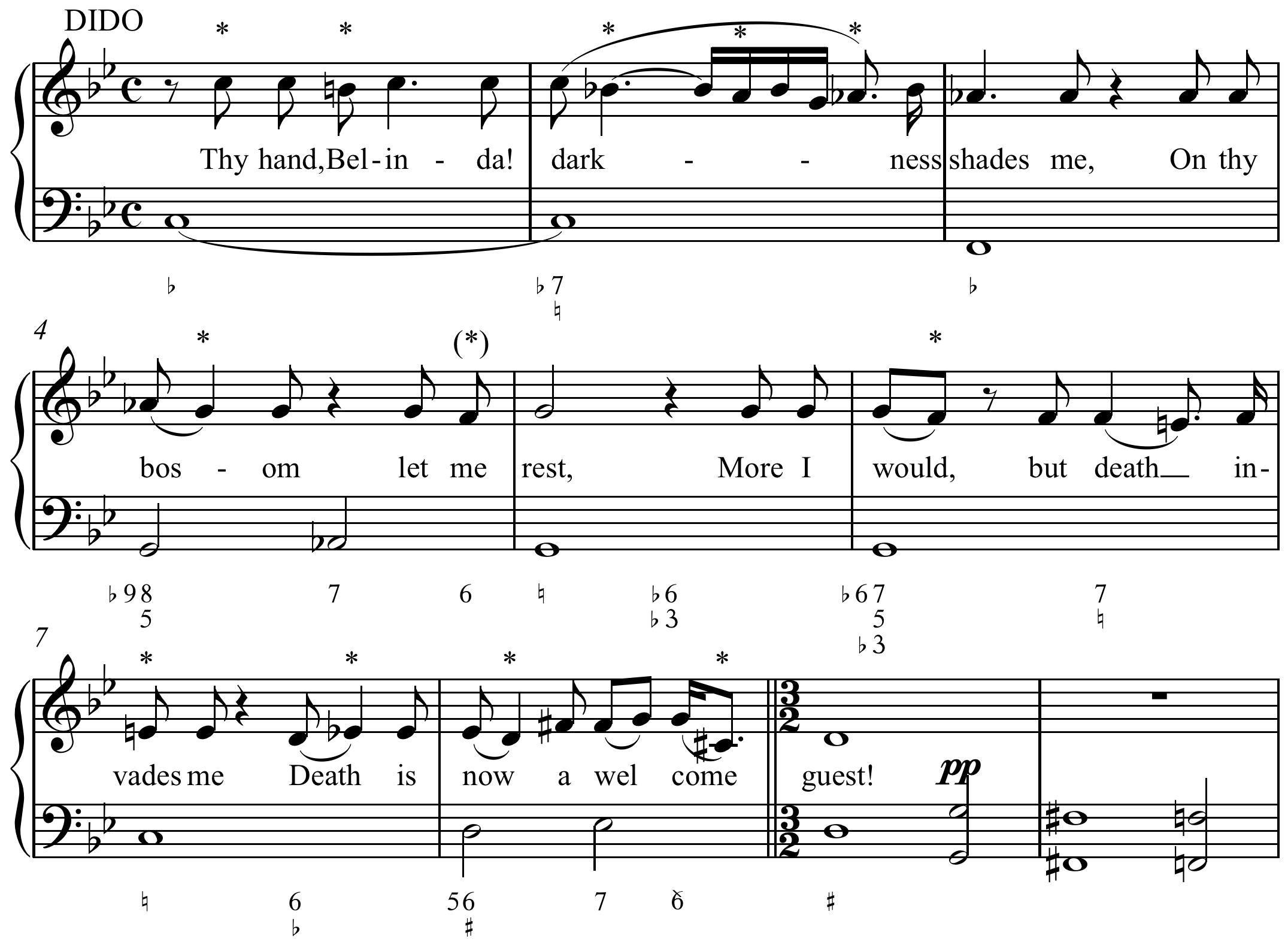|
Syntagma Musicum
''Syntagma Musicum (1614-1620)'' is a musical treatise in three volumes by the German composer, organist, and music theorist Michael Praetorius. It was published in Wittenberg and Wolfenbüttel. It is one of the most commonly used research sources for seventeenth-century music theory and performance practice. The second volume, ''De Organographia,'' illustrates and describes musical instruments and their use; this volume in particular became a valuable guide for research and reconstruction of early instruments in the twentieth century, and thus an integral part of the early music revival. Though never published, Praetorius intended to write a fourth volume on musical composition. The three extant volumes are: * I: ''Musicae Artis Analecta'' * II: ''De Organographia'' * III: ''Termini musicali'' Contents Volume One: Musicae Artis Analecta The first volume was written in Latin and divided into two parts, published separately. The first part, "on sacred or ecclesiastical music, ... [...More Info...] [...Related Items...] OR: [Wikipedia] [Google] [Baidu] |
Syntagma01
Syntagma (σύνταγμα), a Greek word meaning "arrangement" in classical Greek and "constitution" in modern Greek, may refer to: *The Constitution of Greece * Ottoman Empire Constitution of 1876 *Syntagma Square in Athens *Syntagma station of the Athens Metro *A military unit of 256 men in the Ancient Macedonian army *Syntagma (linguistics), a linguistic term related to syntagmatic structure *a genetically encoded sensor to tag active synapses *In biology, especially in dated works: synonymous with Tagma (biology) or an assembly of tagmata. Books *''Syntagma'', a lost work of Hippolytus *a 5th-century work by Gelasius of Cyzicus, ecclesiastical writer *a 6th-century work by Athanasios of Emesa, Byzantine jurist *a 9th-century medical work by Theodosius Romanus, Syriac Orthodox patriarch of Antioch *a 12th-century religious work by Theodore Balsamon, Greek Orthodox patriarch of Antioch *a 14th-century religious work by Matthew Blastares, Byzantine writer *''Syntagma Canonum'', ... [...More Info...] [...Related Items...] OR: [Wikipedia] [Google] [Baidu] |
Michael Praetorius
Michael Praetorius (probably 28 September 1571 – 15 February 1621) was a German composer, organist, and Music theory, music theorist. He was one of the most versatile composers of his age, being particularly significant in the development of musical forms based on Protestant Reformation, Protestant hymns. Life Praetorius was born Michael Schultze, the youngest son of a Lutheran pastor, in Creuzburg, in present-day Thuringia. After attending school in Torgau and Zerbst, he studied divinity and philosophy at the University of Frankfurt (Oder). He was fluent in a number of languages. After receiving his musical education, from 1587 he served as organist at the Marienkirche in Frankfurt. From 1592/3 he served at the court in Wolfenbüttel, under the employ of Henry Julius, Duke of Brunswick-Lüneburg. He served in the duke's Staatsorchester Braunschweig, State Orchestra, first as organist and later (from 1604) as ''Kapellmeister'' (court music director). [...More Info...] [...Related Items...] OR: [Wikipedia] [Google] [Baidu] |
Wittenberg
Wittenberg, officially Lutherstadt Wittenberg, is the fourth-largest town in the state of Saxony-Anhalt, in the Germany, Federal Republic of Germany. It is situated on the River Elbe, north of Leipzig and south-west of the reunified German federal capital city of Berlin, and has a population of 46,008 (2018). Wittenberg has close connections with Martin Luther (1483–1546) and the 16th century religious / theological movement of Protestantism begun here in the Reformation, and the large branch of Western Christianity started here of Lutheranism, Evangelical Lutheranism, for which it received the honorific title ''Lutherstadt'' and has been called the "cradle of the Reformation" and "cradle of Protestantism". Several of Wittenberg's buildings are associated with the historical / religious events, including a preserved part of the Augustinians, Augustinian monastery of the local community of the world-wide Catholic Church, Roman Catholic Order of St. Augustine in which Luth ... [...More Info...] [...Related Items...] OR: [Wikipedia] [Google] [Baidu] |
Wolfenbüttel
Wolfenbüttel (; ) is a town in Lower Saxony, Germany, the administrative capital of Wolfenbüttel District Wolfenbüttel (; ) is a town in Lower Saxony, Germany, the administrative capital of Wolfenbüttel (district), Wolfenbüttel District. It is best known as the location of the internationally renowned Herzog August Library and for having the lar .... It is best known as the location of the internationally renowned Herzog August Library and for having the largest concentration of timber-framed buildings in Germany, around 1,000. It is an Landesbischof, episcopal see of the Evangelical Lutheran Church in Brunswick. It is also home to the Jägermeister distillery, houses a campus of the Ostfalia Hochschule für angewandte Wissenschaften, Ostfalia University of Applied Sciences, and the Landesmusikakademie of Lower Saxony. Geography The town center is located at an elevation of on the Oker river near the confluence with its Altenau (Oker), Altenau tributary, about south ... [...More Info...] [...Related Items...] OR: [Wikipedia] [Google] [Baidu] |
Oxford University Press
Oxford University Press (OUP) is the publishing house of the University of Oxford. It is the largest university press in the world. Its first book was printed in Oxford in 1478, with the Press officially granted the legal right to print books by decree in 1586. It is the second-oldest university press after Cambridge University Press, which was founded in 1534. It is a department of the University of Oxford. It is governed by a group of 15 academics, the Delegates of the Press, appointed by the Vice Chancellor, vice-chancellor of the University of Oxford. The Delegates of the Press are led by the Secretary to the Delegates, who serves as OUP's chief executive and as its major representative on other university bodies. Oxford University Press has had a similar governance structure since the 17th century. The press is located on Walton Street, Oxford, Walton Street, Oxford, opposite Somerville College, Oxford, Somerville College, in the inner suburb of Jericho, Oxford, Jericho. ... [...More Info...] [...Related Items...] OR: [Wikipedia] [Google] [Baidu] |
Commonplace Book
Commonplace books (or commonplaces) are a way to compile knowledge, usually by writing information into blank books. They have been kept from antiquity, and were kept particularly during the Renaissance and in the nineteenth century. Such books are similar to scrapbooks filled with items of many kinds: notes, proverbs, adages, aphorisms, maxims, quotes, letters, poems, tables of weights and measures, prayers, legal formulas, and recipes. Entries are most often organized under systematic subject headings and differ functionally from journals or diaries, which are chronological and introspective. Overview "Commonplace" is a translation of the Latin term ''locus communis'' (from Greek ''tópos koinós'', see literary topos) which means "a general or common place", such as a statement of proverbial wisdom. In this original sense, commonplace books were collections of such sayings, such as John Milton's example. "Commonplace book" is at times used with an expansive sense, refe ... [...More Info...] [...Related Items...] OR: [Wikipedia] [Google] [Baidu] |
Theodor Zwinger
Theodor Zwinger the Elder (2 August 1533 – 10 March 1588) was a Swiss physician and Renaissance humanist scholar. He made significant contributions to the emerging genres of reference and travel literature. He was the first distinguished representative of a prominent Basel academic family. Life and work Zwinger was the son of Leonhard Zwinger, a furrier who had become a citizen of Basel in 1526. His mother was Christina Herbster, the sister of Johannes Oporinus (Herbster) the famed humanist printer. After Zwinger's father's death, Christina married the noted humanist Conrad Lycosthenes (Wolffhart). Zwinger studied at the Universities of Basel, Lyon, and Paris before taking a doctorate in medicine at the University of Padua with Bassiano Landi, the successor of Johannes Baptista Montanus. In Paris he studied with the iconoclastic philosopher Petrus Ramus. He joined the faculty of the University of Basel as a member of the ''consilium facultatis medicae'' from 1559. At Bas ... [...More Info...] [...Related Items...] OR: [Wikipedia] [Google] [Baidu] |
Figured Bass
Figured bass is musical notation in which numerals and symbols appear above or below (or next to) a bass note. The numerals and symbols (often accidental (music), accidentals) indicate interval (music), intervals, chord (music), chords, and non-chord tones that a musician playing piano, harpsichord, organ (music), organ, or lute (or other instruments capable of playing chords) should play in relation to the bass note. Figured bass is closely associated with #Basso continuo, basso continuo: a historically improvised accompaniment used in almost all genres of music in the Baroque music, Baroque period of Classical music ( 1600–1750), though rarely in modern music. Figured bass is also known as thoroughbass. Other systems for Chord (music)#Notation, denoting or representing chords include plain staff notation, used in classical music; Roman numeral analysis, Roman numerals, commonly used in harmonic analysis (music), harmonic analysis; chord letters, sometimes used in modern music ... [...More Info...] [...Related Items...] OR: [Wikipedia] [Google] [Baidu] |
Historically Informed Performance
Historically informed performance (also referred to as period performance, authentic performance, or HIP) is an approach to the performance of Western classical music, classical music which aims to be faithful to the approach, manner and style of the musical era in which a work was originally conceived. It is based on two key aspects: the application of the stylistic and technical aspects of performance, known as performance practice; and the use of #Early instruments, period instruments which may be reproductions of historical instruments that were in use at the time of the original composition, and which usually have different timbre and temperament (music), temperament from their modern equivalents. A further area of study, that of changing listener expectations, is increasingly under investigation. Given no Sound recording and reproduction, sound recordings exist of music before the late 19th century, historically informed performance is largely derived from Musicology, musico ... [...More Info...] [...Related Items...] OR: [Wikipedia] [Google] [Baidu] |
Claudio Monteverdi
Claudio Giovanni Antonio Monteverdi (baptized 15 May 1567 – 29 November 1643) was an Italian composer, choirmaster and string instrument, string player. A composer of both Secular music, secular and Church music, sacred music, and a pioneer in the Origins of opera, development of opera, he is considered a crucial Transition from Renaissance to Baroque in instrumental music, transitional figure between the Renaissance music, Renaissance and Baroque music, Baroque periods of music history. Born in Cremona, where he undertook his first musical studies and compositions, Monteverdi developed his career first at the court of Mantua () and then until his death in the Republic of Venice where he was ''maestro di cappella'' at the basilica of St Mark's Basilica, San Marco. His surviving letters give insight into the life of a professional musician in Italy of the period, including problems of income, patronage and politics. Much of List of compositions by Claudio Monteverdi, Monteve ... [...More Info...] [...Related Items...] OR: [Wikipedia] [Google] [Baidu] |
Syntagma (other)
Syntagma (σύνταγμα), a Greek word meaning "arrangement" in classical Greek and "constitution" in modern Greek, may refer to: *The Constitution of Greece * Ottoman Empire Constitution of 1876 *Syntagma Square in Athens *Syntagma station of the Athens Metro *A military unit of 256 men in the Ancient Macedonian army *Syntagma (linguistics), a linguistic term related to syntagmatic structure *a genetically encoded sensor to tag active synapses *In biology, especially in dated works: synonymous with Tagma (biology) or an assembly of tagmata. Books *''Syntagma'', a lost work of Hippolytus *a 5th-century work by Gelasius of Cyzicus, ecclesiastical writer *a 6th-century work by Athanasios of Emesa, Byzantine jurist *a 9th-century medical work by Theodosius Romanus, Syriac Orthodox patriarch of Antioch *a 12th-century religious work by Theodore Balsamon, Greek Orthodox patriarch of Antioch *a 14th-century religious work by Matthew Blastares, Byzantine writer *''Syntagma Canonum ... [...More Info...] [...Related Items...] OR: [Wikipedia] [Google] [Baidu] |








